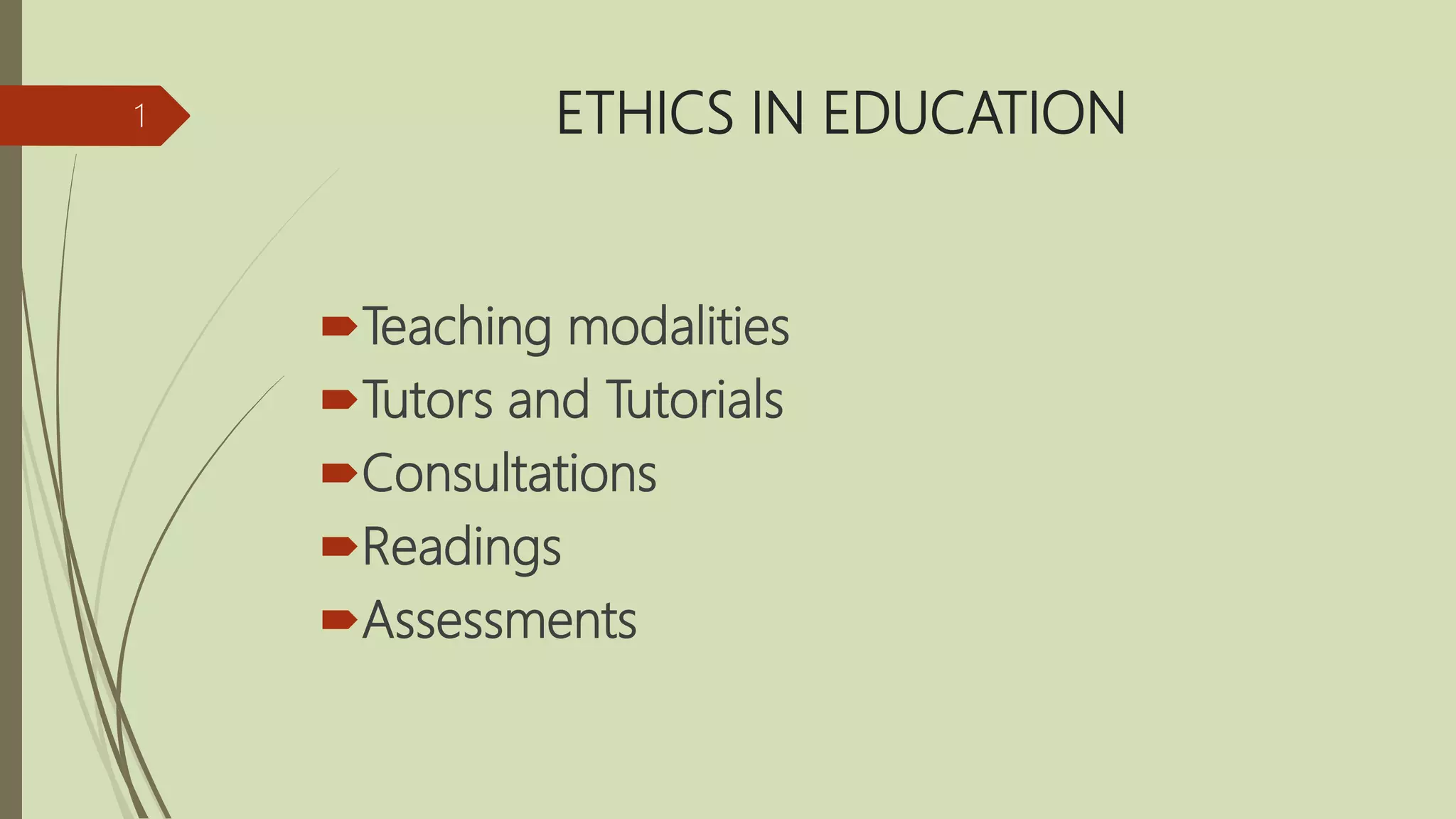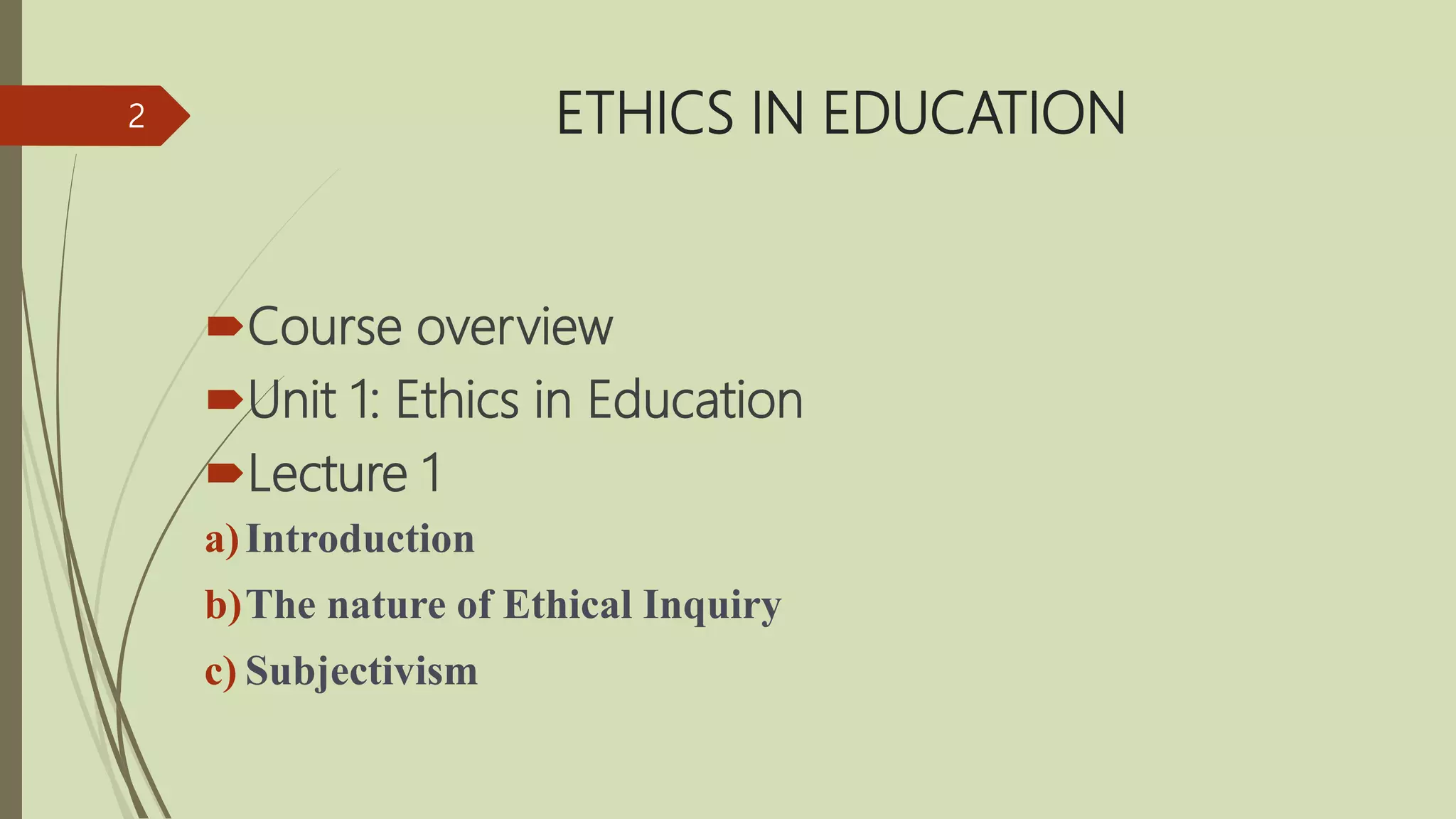This document discusses ethics in education over several pages. It covers topics like the nature of ethical inquiry, including descriptive, meta-ethical and normative inquiry. It also discusses phases of morality and moral development in children. Additionally, it examines the concepts of subjectivism and moral relativism, questioning whether moral judgments are just personal views or can be true/false. Cultural relativism is defined as the view that morality is determined by cultural standards. Some arguments for and against cultural relativism are presented.






















